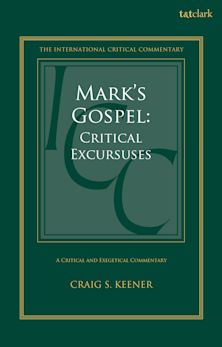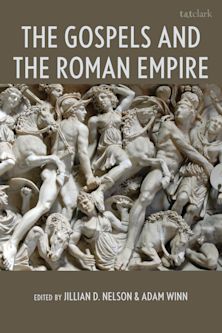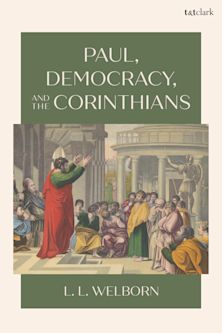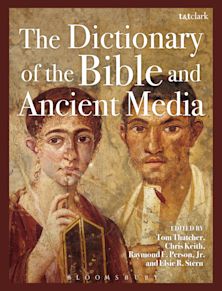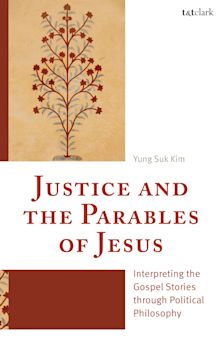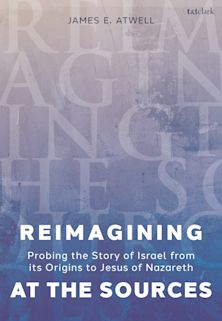- Home
- ACADEMIC
- Biblical Studies
- New Testament
- Weak Elements, Weak Flesh
Weak Elements, Weak Flesh
Reading Galatians in Conversation with Philo and Greek Medical Discourse
Weak Elements, Weak Flesh
Reading Galatians in Conversation with Philo and Greek Medical Discourse
This product is usually dispatched within 2-4 weeks
- Delivery and returns info
-
Flat rate of $10.00 for shipping anywhere in Australia
You must sign in to add this item to your wishlist. Please sign in or create an account
Description
In Weak Elements, Weak Flesh, Ernest Clark reinvigorates an ancient interpretation overlooked since the fourth century. Clark argues that when Paul writes “we too were enslaved under the elements of the world,” he means that the elements that compose the cosmos also compose and compromise the flesh, allowing sin to enslave human persons through their bodies (Gal 4.3). This book demonstrates that early Jews introduced the phrase στοιχε?α το? κ?σμου to refer to the material elements: earth, water, air, and fire. Greek medicine understood these elements to mediate the bodily stimuli and desires which enslave the soul. In his philosophy according to the cosmic elements, Philo promotes the law of Moses as the effective way to be “redeemed from slavery” to the flesh and to attain righteousness. Paul’s epistle to the Galatians opposes this sort of “redemptive nomism.” Paul accepts that weak elements compose the weak flesh and that they mediate sinful stimuli and desires that lead to the actions of the flesh. However, he denies that the law can make people alive or righteous. Instead, Paul prescribes crucifixion with Christ and new life with the Spirit as the cure for sin’s infection of the flesh made of weak elements.
Table of Contents
Chapter 1: The Term “Στοιχε?α το? Κ?σμου” in Ancient Greek and Early Jewish Works
Chapter 2: The Concept of Enslavement to the “Στοιχε?α το? Κ?σμου” in Ancient Greek and Early Jewish Sources
Chapter 3: The Argument for Redemptive Nomism in Philo’s Philosophy According to the “Στοιχε?α το? Κ?σμου”
Chapter 4: The Flesh and Sin: Enslaved Under the Στοιχε?α το? Κ?σμου
Chapter 5: The Law Against the Στοιχε?α and the Flesh
Chapter 6: The Son and the Spirit Against the Στοιχε?α and the Flesh
Conclusion
Product details
| Published | 11 Dec 2023 |
|---|---|
| Format | Hardback |
| Edition | 1st |
| Extent | 300 |
| ISBN | 9781978713956 |
| Imprint | Fortress Academic |
| Dimensions | 240 x 159 mm |
| Publisher | Bloomsbury Publishing |
About the contributors
Reviews
-
An attractive re-reading of Paul's Letter to the Galatians … the work invites additional examination of the prevalence of medical literature and terminology both in Hellenistic Judaism and in the New Testament. For those interested in the potential interactions between Philo and Paul, Clark's Weak Elements, Weak Flesh is a stimulating source.
Review of Biblical Literature
-
Anyone familiar with Galatians will have known all along how important for Paul’s argument is the point about the nomos acting as a paidagôgos until the coming of the Messiah, and of pistis. But nobody for sixteen centuries has seen this as (perhaps among other things) medical language. From now on, it will be just as impossible for serious readers of Galatians to ignore this as it would have been for Paul’s original hearers. Dr. Clark is to be congratulated both on his ferreting out of the relevant texts and for his lucid, clear analysis and display of highly complicated sources.
N.T. Wright, University of Oxford
-
Dr. Ernest Clark is a thoughtful man of God whose scholarship bears the signs of deep prayer. He carefully searches the Word of God, and seeks to adhere to what he discovers with his life and thoughts.
Robert Presutti, Spiritual Director at Our Lady of Bethesda
-
Ernest revives a long-forgotten Christian understanding of the ambiguous expression, 'the elements of the world,' forcing modern interpreters of Paul to reassess their views on the meaning of the expression. His compelling arguments and sharp critical engagement with the key interpreters of Paul in the field of study are a delight for his readers. I highly recommend the book to all interested in learning Paul in his original context.
Roji Thomas George, South Asia Institute of Advanced Christian Studies

ONLINE RESOURCES
Bloomsbury Collections
This book is available on Bloomsbury Collections where your library has access.














